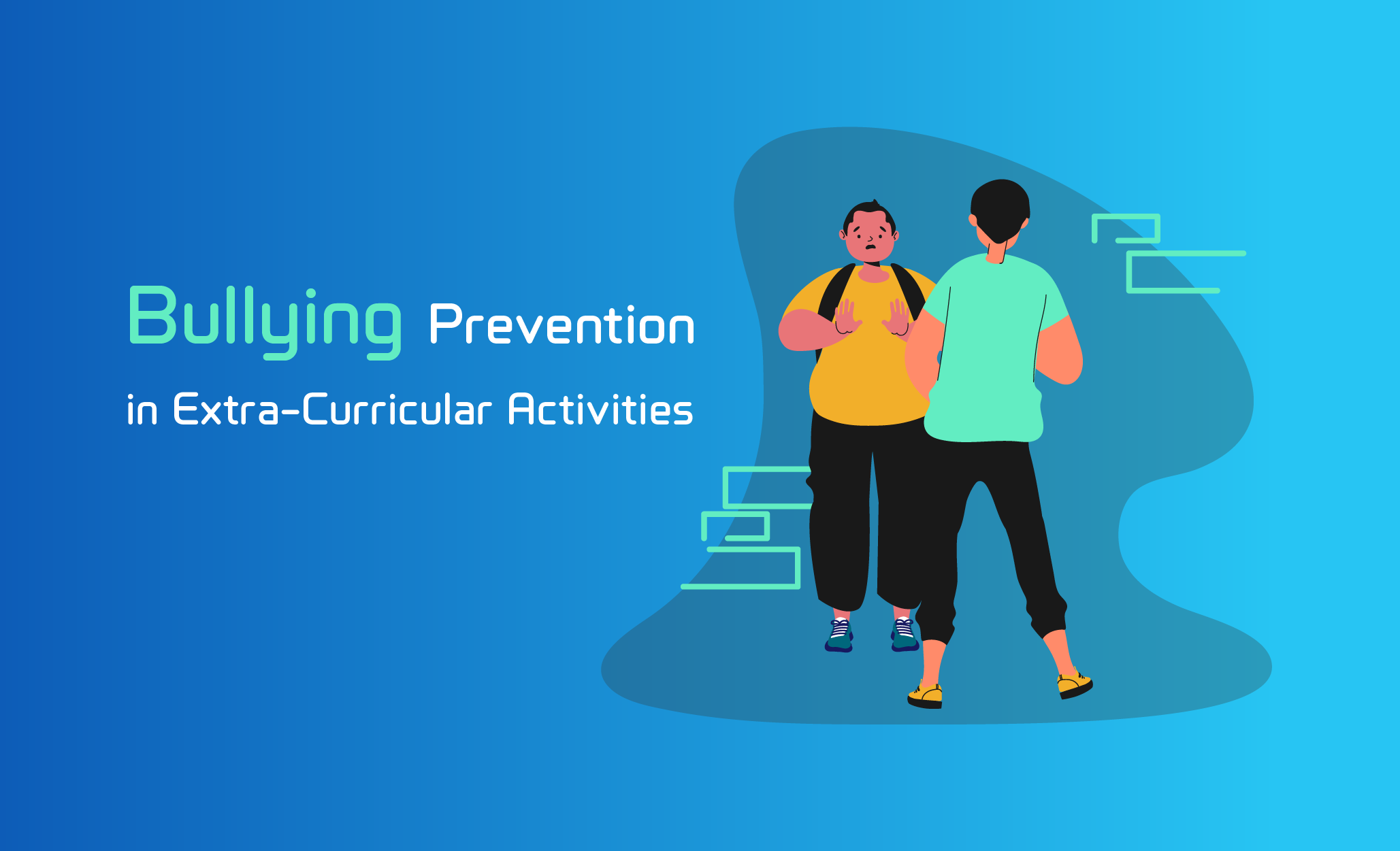Bullying Prevention in Extra-Curricular Activities

Admin

Extra-curricular activities are a great way to provide youth with opportunities. It lets children follow their interests and be involved in activities outside the classroom. Whether it’s sports, arts, cultural and faith-based groups or other programs, youth can learn new skills through hands-on practice, creative projects, and teamwork. They can also experience growth, friendship, mentorship, and character building.
As in school, bullying can occur during these activities. Coaches, instructors, and leaders in extra-curricular activities can have positive impacts on the children in their programs when they create safe, supportive programs that help prevent bullying. The children in their programs will receive even more enrichment and growth when they are free from bullying.
To prevent bullying, leaders can:
- Role model respect, inclusion, and cooperation.
- Talk about the program’s guiding principles and mission.
- Have clear processes for how to resolve conflicts and follow them. Review the processes with participants and families.
- Have a written bullying prevention ‘code of behavior’ that everyone signs. It should be posted in a public place with signatures. Review it regularly with everyone involved.
- When bullying happens, separate and support all involved; speak to each individual privately to find out what happened.
- Add activities into the program that help youth reflect on their experiences. This can help children learn how to think about things from different points of view.
- When issues come up, discuss them with the whole group (as appropriate). Relate them to the program’s guiding principles and codes of conduct.
Bullying Prevention Strategies Based on Type of Activity
Sports Programs
In sports programs, competition is part of the game. Coaches and leaders can focus on teamwork and skill-building to bring out the best in their students. These strategies can also help prevent bullying. You can:
- Foster development of individual skills. Rotate roles in practices and games so everyone gets a chance to learn and play new roles.
- Design tasks that are appropriate to the skills and physical levels of each student. That can help make sure everyone has a role to play.
- Support children who are struggling to improve their skills by having other, more skilled team members mentor them.
- Promote the idea that no one starts out as a pro. Everyone gets better with practice.
Faith-based Organizations
Faith-based organizations are an important component of communities. They help children develop their values and moral engagement. There are many ways that faith leaders can help prevent bullying in their programs and in the larger community. You can:
- Promote awareness and dispel stereotypes of other faiths. Help students understand the similarities and differences between their faith and others.
- Create educational opportunities with different community groups. Help students learn together and from each other.
- Have students work together on community service projects.
- Address bullying within the group or of others outside of the group.
- Cultivate empathy. Have open discussions about the bullying experiences of your students. Ask them what bullying might feel like for each person involved (as targets, bystanders, and those doing the bullying). Discuss the topic of being bullied because of one’s faith or beliefs.
Art
Art can help children and youth develop creative skills, ideas, and talents. Some art forms involve teamwork (theater, dance, performance, music). Some are individual (visual arts, literary arts, performance). Participating in the arts can involve personal self-expression that is shared within the group or publicly. Sometimes, this leads to some children and youth feeling particularly vulnerable. There are many ways to help prevent bullying in arts settings. You can:
- Teach students how to provide constructive feedback on the art or performance. This type of feedback should not be negative, poke fun, or be a comment on the person.
- Teach children how to receive feedback on their work without taking it personally. Stress that feedback is not an insult or a comment on them as a person.
- Promote the idea that everyone is in a process of learning and development. They are getting better with practice.
- Promote the idea that every individual contributes to the whole performance. Encourage ways they can improve with each other, such as mentoring.